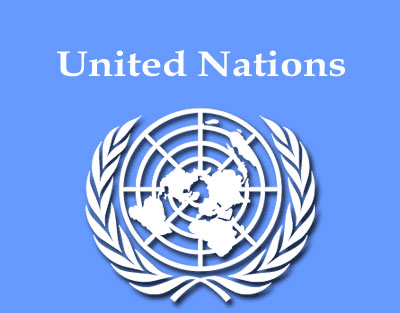Iran, Syria violate UN sanctions banning arms transfer, members say
 New York - Iran supplied arms to Syria in violation of a UN Security Council resolution banning arms transfer as part of measures against Iran's nuclear activities, the United States and Britain said Tuesday.
New York - Iran supplied arms to Syria in violation of a UN Security Council resolution banning arms transfer as part of measures against Iran's nuclear activities, the United States and Britain said Tuesday.
Details of the arms transfer to Syria were not made public, but the US and British ambassadors called for efforts to stop weapons deals between Tehran and Damascus.
US Ambassador Susan Rice said the 15-nation council should take action to end Iran's weapons procurement to Syria.
"My statement (in the council meeting) clearly condemns Iran's transportation of weapons to Syria," Rice told reporters following a closed-door meeting of the council to discuss a fresh report on sanctions against Iran.
Rice said the UN Security Council committee dealing with sanctions should debate what additional sanctions are needed. The committee, which is headed by Japanese Ambassador Yukio Takasu, has called on Iran and Syria to provide explanations about the arms transaction.
British Ambassador John Sawers said the arms transfer was a "clear violation" of the UN Security Council resolution that bans supply, trade or transfer of any arms and related material from Iran to all states. Any transfer and procurement of weapons from Iran is a breach of international obligations under a UN resolution.
"The United Kingdom looks forward to the committee receiving explanations from Iran and Syria as to why the shipment was permitted by Iran as the reported state of origin, and as to the involvement of Syria as the reported state of destination," Sawers said.
The council discussed the latest report from the International Atomic Energy Agency (IAEA) on Iran's nuclear activities, particularly Iran's advanced uranium enrichment.
The IAEA said Iran now has more than 5,500 centrifuges installed, of which about 4,000 are actively enriching uranium.
Sawers said Iran had "no plausible civilian use" for most of the centrifuges.
"Iran has also refused access to IAEA inspectors to the heavy water reactor at Arak, for the second time in a row," Sawers said. "This is of particular concern because the reactor's design at Arak is ideally suited to producing plutonium, which could be used for nuclear weapons." (dpa)